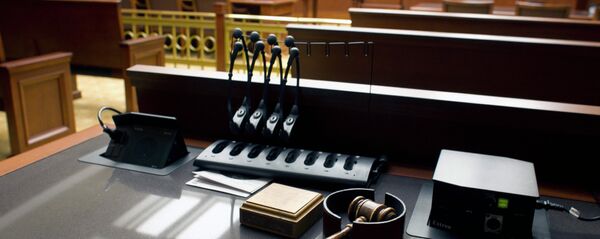According to the report, drug overdose death rates involving opioids for teens aged 15 to 19 more than tripled from 1999 to 2007. Though they later stabilized from 2007 to 2011 and then declined for a short while from 2012 to 2014, the rates shot right back up from 2014 to 2015.
Speaking to Sputnik Radio's By Any Means Necessary, Dr. Kathleen Frydl, author and political historian, told host Eugene Puryear that though Trump is "not actually [declaring a national emergency] because that's an official act that involves different kind of statutory authority," she's still hopeful that "some form of an emergency will be declared."
"I think there is always a note of caution that has to be introduced when you're talking about the Trump administration," Frydl added. "And second of all when you're talking about emergency it has this sort of implied rhetoric that involves escalation."
For Frydl, the sense of escalation involves a rise in punishments for opioid users.
"Escalation and drug policy usually are things that result in more punishment and more prohibition. Those are the exact things that make these crises worse," the author urged.
So how should the government respond to the growing epidemic? According to Frydl, it's a matter of tapping into the likes of the Stafford Act and the Public Health Service Act "as a way to channel money to federal and local agencies to better coordinate a response to the opioid crisis and specifically to train up a bunch of people in medication-assisted treatment."
In addition to sending out specialists to much needed areas, the author insisted that the "production of illicit synthetic chemicals" needs to be made into a "top tier diplomatic issue" in order to lessen the crippling epidemic.
However, considering the base group that elected The Donald and the fact that the epidemic is running rampant across rural America, Frydl also points out that the government's efforts could easily turn into a "leverage to re-establish a law enforcement agenda."
Recalling historical patterns and Trump's fanbase, she believes POTUS is likely to pursue a "law and order" rhetoric "because there are a lot of people within the core of his support that want exactly that."
Making her point clear, Frydl referenced a shirt that says "Kill Your Local Heroin Dealer" as a clear example of the growing opinion of many rural Americans whose communities have been hit hard by the epidemic.
With the Drug Enforcement Agency rolling out its "360 Degree Strategy" Thursday to tackle the issue from all sides — from cracking down on drug traffickers to raising awareness on overmedication — only time will tell if the current administration does go down the "law and order" path to clean up affected communities.


